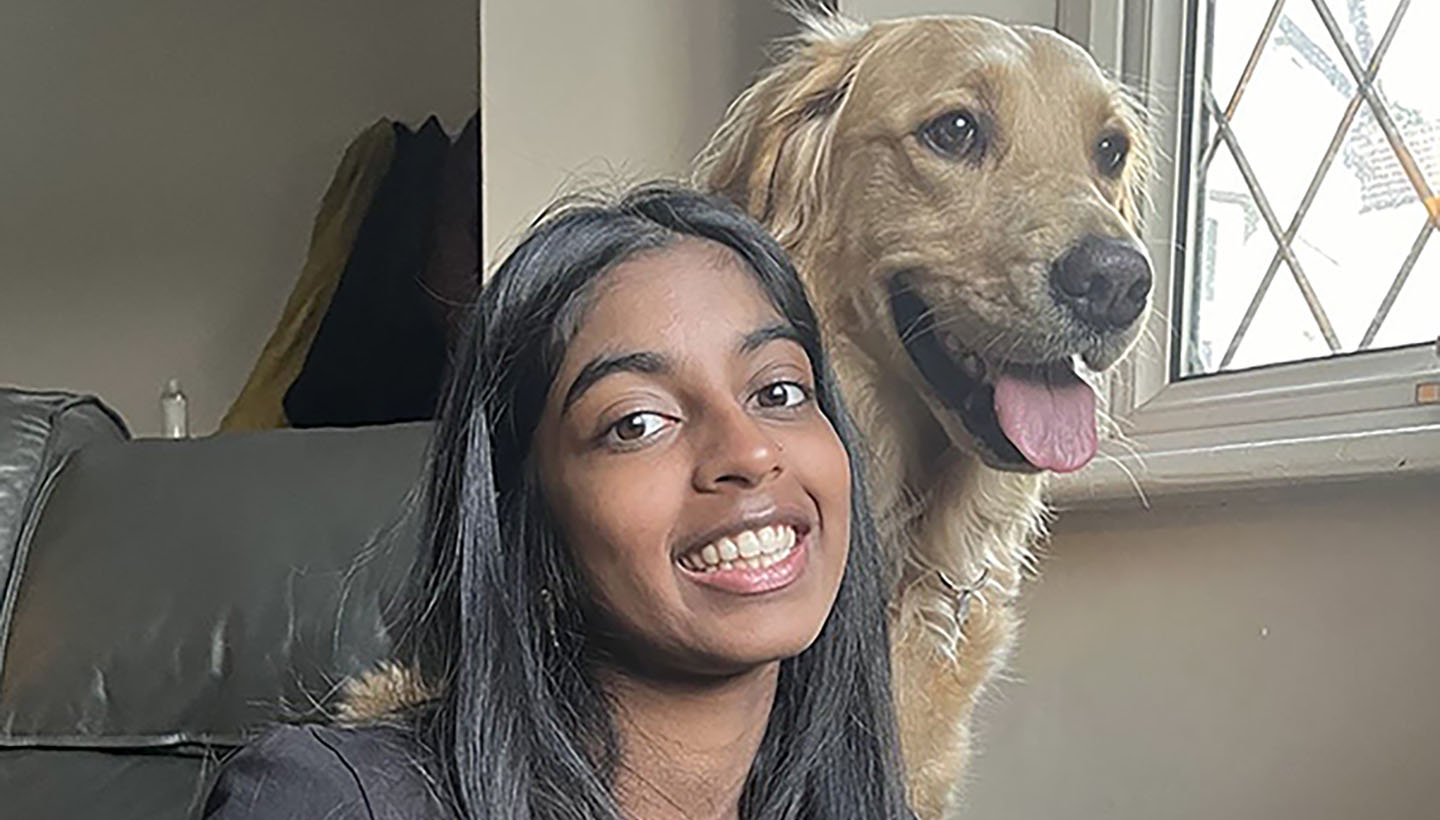University and lupus: What Varshi has learnt and her tips for students with arthritis
21 August 2024
Varshi, 18, is at university reading medicine. She was diagnosed with lupus four years ago and is on the Versus Arthritis Young People’s Panel.
University life hasn’t been easy for Varshi with her condition, but after finishing her first year she has found lots of coping mechanisms. Here, Varshi tells us what she has learnt and offers tips for other students with arthritis.
Read more about managing arthritis at university
Varshi's Lupus Diagnosis
Varshi was diagnosed with lupus when she was 15. It had a big impact on her time at school.
“I got itchy rashes and my skin would go a bit raised where it was itchy,” she says. “I’d be sitting in class and I wouldn’t be able to concentrate.”
“I wouldn’t be able to write because my fingers were hurting.”
What is lupus?
Varshi was diagnosed with lupus a few months later.
“I was really shocked because I’d convinced myself that nothing was wrong,” says Varshi. “I had no idea what lupus was at the time. I’d never heard of it.”
Lupus is a long-term condition that can cause inflammation in the skin, organs, and in various other places in the body. It’s an autoimmune condition, which means that the immune system, which normally protects us against infection and illness, starts to attack the body’s own tissues instead.
The three most common symptoms of lupus are joint pains, skin rashes, and extreme tiredness, known as fatigue.
Living with fatigue
After being diagnosed with lupus, Varshi started treatment, which included steroids, methotrexate and hydroxychloroquine. The medication helped with her joint pain, but she still experiences fatigue.
Fatigue is an extreme, sometimes overwhelming, physical and mental tiredness, that doesn’t significantly improve with rest or sleep.
“Fatigue has been a big thing, especially because I was studying a lot to get the grades I wanted, so that was hard,” Varshi says.
Going to university

At the same time as coming to terms with her diagnosis, Varshi was busy focussing on going to university. She continued to work hard at sixth form and made it onto her university course reading medicine in London, where she has just finished her first year.
Varshi doesn’t think of herself as a role model - “I work a bit too hard and sacrifice my health,” she says. But she knows her time at university so far has taught her a lot about her condition.
Here are some of Varshi’s tips for navigating university with arthritis.
Varshi’s tips for university with arthritis
Get plenty of sleep
Firstly, the most important thing for Varshi is to get enough sleep.
University can be tiring. When you’re balancing studying, socialising and often living independently for the first time, it isn’t always easy to prioritise rest and recovery.
“The one thing I try to do is get eight hours of sleep a day,” she says. “If I get less than that I can’t function with my fatigue.”
Read our tips for getting a good night’s sleep with arthritis
Make the most of online resources
“With reading medicine, once you stop doing lectures for a long duration, it’s almost impossible to catch up,” says Varshi. “I really tried to stay on top of things even when I was extremely unwell.”
If, like Varshi, your course has a lot of contact hours, she recommends making the most of online resources. That way, you can still learn when you aren’t well enough to attend a lecture in person.
“They stream lectures online which is really helpful,” Varshi says.
Want your university to better understand your condition? Why not share this Musculoskeletal (MSK) Health Toolkit with them?
Contact the disability support service
“Before I started my course, I contacted the disability and dyslexia service,” says Varshi.
Most universities will have teams in place to support you. These are often called Student Support Services, Student Welfare Offices or Disability Support teams.
What’s offered will vary depending on where you go to university, but they should be able to support you with everything from finding the right accommodation, to taking your exams, and applying for Disabled Students’ Allowance (DSA).
“I got a bunch of equipment like an ergonomic keyboard and mouse because I’m on my computer all day every day,” Varshi says. “They were really compassionate and helpful.”
Try some physical activity
Staying active can be a great way to reduce the pain and symptoms of arthritis.

Varshi has found that physical activity has helped her to manage her condition at university.
“I stopped exercising in year 11 and sixth form because of the joint pain, but for the past year I’ve gotten into running and going to the gym,” she says.
“I feel like my fitness has really improved.”
Sign up to our Let’s Move newsletter for more exercise videos and tips.
Talk to your flatmates
Talking about arthritis can be challenging, especially with new people.
“When I came to university, I didn’t really want to tell anyone at first,” says Varshi.
But Varshi felt it was important to be able to tell some of the people she was living with. Being open with those around you can help your mental health and ensure you get the right care and support.
“Once I settled in, I told maybe three of my flatmates, only the people I was close to, in case of emergency and also just to talk to about it,” she says.
Call our free helpline for information, advice and emotional support
Try not to let it define you
Varshi has one final tip for students with arthritis.
“My main message would be to try not to let your [condition] define you,” says Varshi.
“I know it’s hard and everyone’s different, but I feel like I’ve tried to turn my life around. It was really hard for me to study at the same time as being in pain or being ill and I could’ve easily said I don’t want to do it anymore.
“But by having that perseverance and carrying on, you can do something about it, and it doesn’t have to define you.”
We’re here for you
If you or a family member under the age of 25 has arthritis, we run a Young People and Families Service that provides information and support and puts on a range of events across the country.